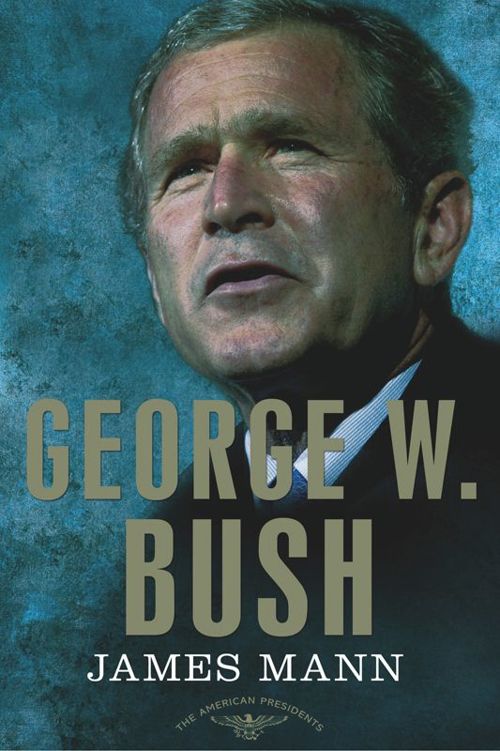
George W. Bush
The American Presidents Series: The 43rd President, 2001-2009
کتاب های مرتبط
- اطلاعات
- نقد و بررسی
- دیدگاه کاربران
نقد و بررسی

October 27, 2014
The latest volume in the American Presidents series meets its goal of providing a concise yet thorough biography of the 43rd president. Mann’s claim that Bush’s tenure “was, by any standard, one of the most consequential presidencies in American history” is made from a balanced assessment of the facts. Mann (Rise of the Vulcans: The History of Bush’s War Cabinet) begins by tracing Bush’s transformation from easygoing frat boy into a skilled politician. The bulk of the book, naturally, deals with his eight years in office, a period focused on the “war on terror.” Mann notes that historians in 50 years might view the conflicts as necessary to protect the homeland, or see Bush’s response as the “starting point in the establishment of a surveillance state in which American rights to privacy were irretrievably damaged.” Nonpartisan readers will find little to take issue with in Mann’s bottom-line judgment that the now deeply unpopular chief executive was “not responsible for all of America’s difficulties,” but undeniably did, through his ambitious but careless initiatives, exacerbate the nation’s problems.

November 1, 2014
The latest in the admirable American Presidents series is premature because too little time has passed to evaluate our 43rd president, but Mann (Fellow in Residence/Johns Hopkins Univ. School of Advanced International Studies; The Obamians: The Struggle Inside the White House, 2012, etc.) writes an insightful biography without much partisanship.Before he was elected in 2000, George W. Bush's life gave few hints of what would follow. Son of a moderate Republican president, his intemperate youth gave way after marriage and conversion to evangelical Christianity. He gained experience helping with his father's campaigns, and he won the Texas governorship in 1994. His conservative administration favored business and law and order but lacked the confrontational approach that came later. Mann maintains that, as president, Bush followed the lead of advisers, mostly veterans of his father's term, but proved a quick study and soon exercised effective leadership. When he entered office, the United States budget was running surpluses. Eight years later, two tax cuts and two multitrillion-dollar wars financed entirely by borrowing left a gigantic deficit that frightens even Republicans (although they blame it on Democratic social programs). After the devastating events of 9/11, Bush faced the rage that swept the nation and its leaders. The result was not an attack on terrorism (largely a police matter) but a massive, expensive military buildup and pugnacious foreign policy that seemed aimed at demonstrating America's fighting prowess. Sheltered from traditional wartime inconveniences (higher taxes, conscription), anti-war opinion remained muted until years of frustration in Iraq and Afghanistan finally eroded Bush's popularity. Presidential reputations often improve with time and rarely decline. Aware of this, Mann delivers a remarkably evenhanded account, eschewing the painful emotions many readers will feel until historians sort matters out.
COPYRIGHT(2014) Kirkus Reviews, ALL RIGHTS RESERVED.

January 1, 2015
The second son-of-a-president president, George W. Bush also resembled John Quincy Adams in winning the office extraordinarilyAdams by a House of Representatives vote, Bush by a Supreme Court decision. Bush's tenure will always be better recalled than Adams', however, because, Mann calmly notes, it occurred at a critical juncture in American history. Recounting Bush's good-time-Charlie youth, unsuccessful oil-business career, and lucrative co-ownership of the Texas Rangers baseball team before his first electoral success, Mann emphasizes that politics was his enduring preoccupation all along. Working on his father's and others' campaigns, he honed the team building and constituency wooing that paid off in his 1994 election as Texas' governor. He had also waited until his father's retirement to become a candidate. As president, that critical juncture overtook him, first and foremost on 9/11 but as fatefully later with Hurricane Katrina and the 2008 financial crash. Mann contends that Bush's unsatisfactory handling of crises stemmed from relying too much on his advisors and refraining from being the effective hands-on executive he could have been. A sober overview.(Reprinted with permission of Booklist, copyright 2015, American Library Association.)

























دیدگاه کاربران